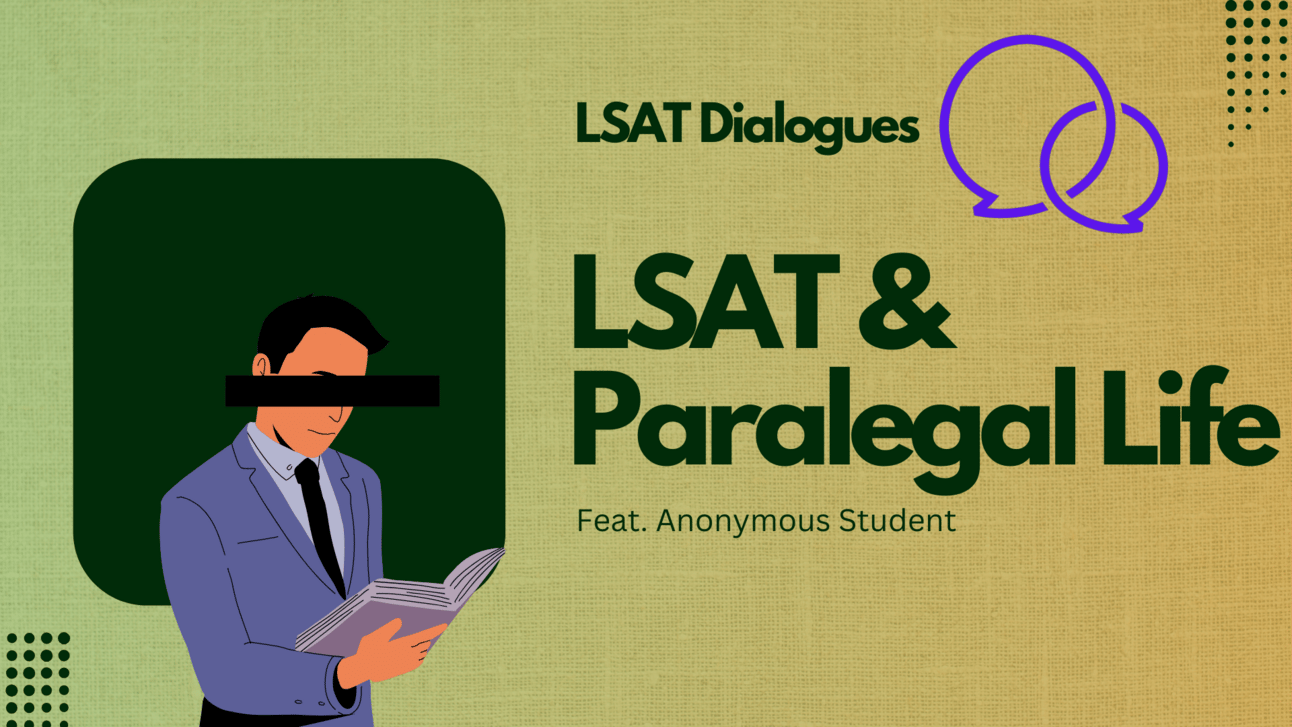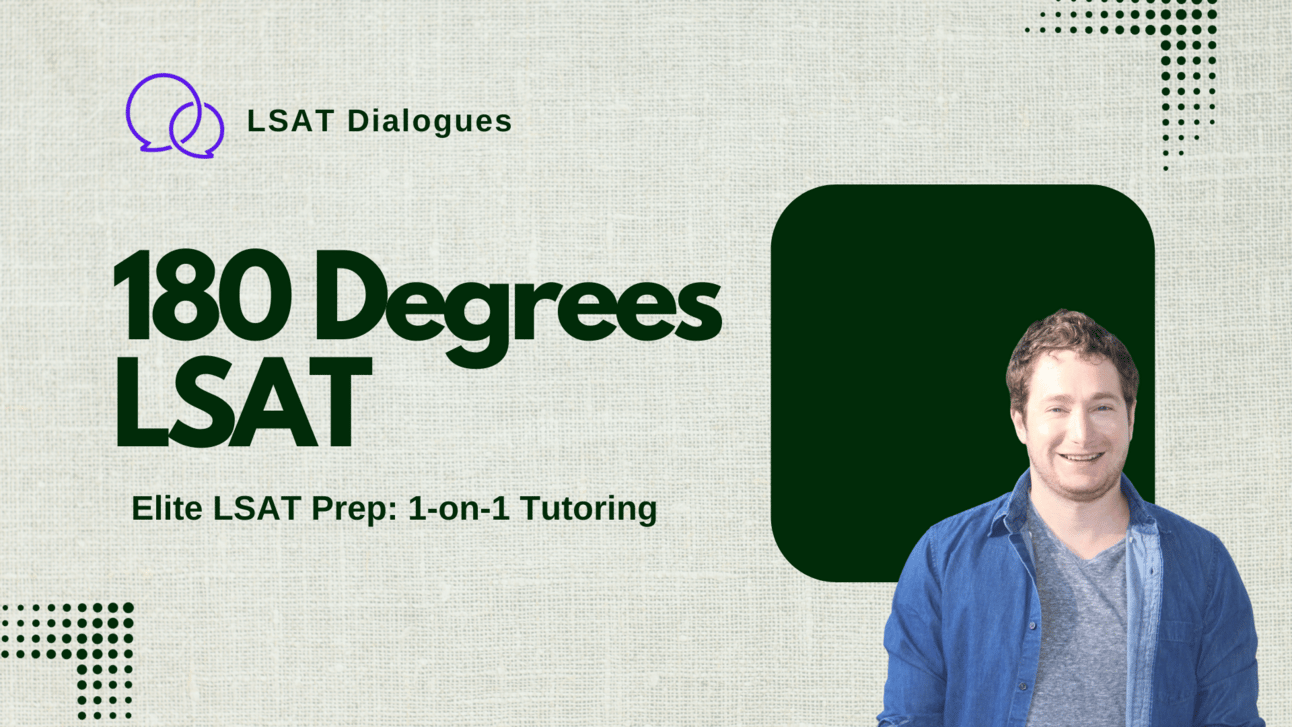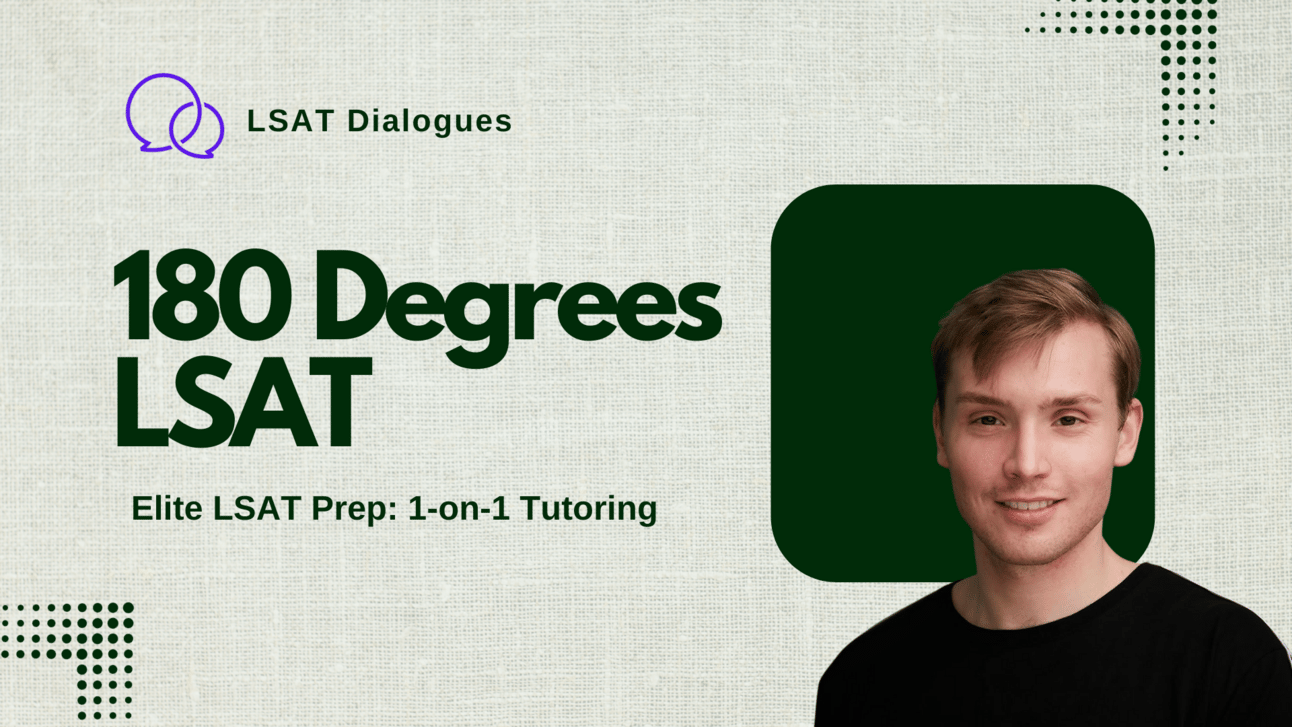- LSAT Dialogues
- Posts
- Will working as a Paralegal help with Law School?
Will working as a Paralegal help with Law School?
Navigating studying for the LSAT and a demanding job

Interview with Anonymous Student
Commentary from Larkin Robson
Helpful Links
About 180 Degrees LSAT
👋 Hi, Welcome to LSAT Dialogues
Hi, I’m Morgan Barrett - thanks for signing up for LSAT Dialogues. If you feel like it, reply to the newsletter and let me know where you are in your LSAT Journey.
Studying for the LSAT and applying to Law School can be a lonely and frustrating experience. Hearing stories from others about what worked (and what didn’t) can make the process better, though.
Today, we chat with an Anonymous Student about navigating life as a paralegal and finding time to study for the LSAT. This student really suffered but she ended up at a top 3 law school.
Stats:
170 LSAT
Under Represented Minority (URM)
3.78 at a top 50 school
3 years paralegal experience at top 10 law firm

Why become a paralegal?
I was interviewing for consulting jobs but didn’t love the vibe. I still feel strongly that consulting is a fraudulent profession.
I decided to interview with a couple top law firms for paralegal positions. [ Redacted Top 10 law firm ] was the first to make an offer. I took that job. I feel pretty positively about the whole experience. I will admit that not everyone has a universally positive experience.
What was it like balancing the demands of such a chaotic intense job and studying?
Tough. It was hard to have a social life, focus on work, and study. You have to make a sacrifice. I had to forgo a lot of invites to hang. Covid made that easier, though.
But, in terms of the paralegal experience, it was a huge advantage. There are lots of other paralegals applying to law school so it’s not a differentiator for applications. It helps, though, during recruiting for jobs - if you can survive a couple years as a paralegal, law firms will see you as a less risky hire. They know you can handle a demanding environment.
You actually went back to the same law firm -
Yeah, it’s funny that it worked out like that. It’s not a guarantee but happens occasionally for paralegals. A lot of factors came into play. I want to do litigation but the firm leans heavily corporate. I received a diversity fellowship from the firm. I liked the culture and the experience on the corporate side so decided to give the litigation practice a shot and then really enjoyed it. I committed to going back post graduation.
You had the distinct privilege of taking the first digital LSAT
I took the first digital LSAT and had a complete meltdown on reading comprehension. I didn’t finish. I cried for two days. But I got a 168.
Absolutely shocked - that meant I basically got all the other questions, you know excluding the ones in reading comp I didn’t get to, correct. And suddenly I knew I could do it. I knew I could score a 170 or higher. That removed a lot of the pressure.
Oh side note, the LSAC released scores on the same day Ruth Bader Ginsburg died. Lots of emotions going on that day.
The 2021 cycle was insane, what was your experience?
So I applied to 16 schools. I got waitlisted at seven. And they were all like top 14 schools and for a lot of them I had a higher LSAT or GPA than their median. That was incredibly frustrating just because again, I had worked my ass off for this.
The last one I heard from was Stanford - at the end of April. I already deposited at UCLA. But then I got the call. I was actually on the toilet, lol. And I was like, they're probably calling to tell me that something is missing for my file. But, it was good news! I got in.
I had written to all the schools that I hadn’t heard from or had waitlisted me that I would accept even if they didn’t give me financial aid. I think that helped.
What was the most challenging part of the LSAT?
I felt like I always needed more time. It took me a while to figure out that this is a test you have to train for. It’s more like a sport. Consistently practice to get better at identifying patterns.
Reading comp was my worst section. I had to get comfortable with the length and content of the passages. It’s easy to get thrown off by a subject you’re not familiar with - but ultimately it’s not important.
I started studying by taking a class. I needed individualized help and wish I hadn’t waited so long to get a tutor. Not that it was necessary. But I had limited bandwidth with work.
It took you two cycles to get your LSAT score - how did you stay focused?
I didn’t study continuously. I took breaks. My focus ebbed and flowed. But I wasn’t going to stop until I got my score. Of course, it would have been nice to do it in one cycle, but in the scheme of things it’s better to not settle when it comes to law school.
It’s a balance, though. Because on test day you have to kind of let it go and not care. But to put in the work leading up to it, you really have to care.
Larkin Robson Commentary
Two things stick out to me
I think she’s realistic about the impact of being a paralegal on studying for the LSAT. Preparing for the test will take you longer if you’re working an intense job. Or you have to lower your expectations. I do see a lot of my paralegal students return to firms as lawyers.
The big benefit, in my opinion, is getting a sense for if you’d like the work. Here, I think it informed her that she might want to do litigation instead of corporate/transactional work. I agree that it’s not particularly beneficial for law schoolI tend to recommend just getting a job you like. The flip side is that, I mean hopefully, right, is that you’d enjoy working at a law firm. It’d be good to know that before you spend a quarter million on law school.
Reading comp is by far the hardest section to improve at. You’ve been reading your entire life. Also, people totally underestimate how much of the test is psychological. You’re not a robot taking the test, you’re a human taking the test. The idea of being comfortable or not feeling stressed is major. It’s reflexive - how you’re doing impacts how you feel about the test and how you feel impacts how you do. It’s a major hurdle to get comfortable reading about a ton of topics you’ve never heard of before or haven’t been exposed to.

Larkin Robson
About Larkin
While other tutors and test prep companies try to force students to approach the LSAT using a generic one-size-fits-all schemata, Larkin focuses on each student as an individual, building on the skills and modes of thought they already have. His collaborative and unique approach has yielded big results over the last decade and a half as he routinely helps students get into Harvard, Stanford, Yale and the rest of the T-14 (often with big scholarships).
If you’re feeling stuck or don’t know where to start, reach out.
[email protected]

Morgan Barrett
About Morgan
Morgan Barrett has apprenticed under Larkin since 2018. Since starting as a tutor, Morgan has used Larkin's methods and approach to help students get into Yale, Harvard, Stanford, Columbia, Chicago, Penn, and numerous other top schools, often with large scholarships.
While Morgan has helped students of all experience levels achieve their goals, he specializes in helping students who have a decent grasp of the basics but are feeling stuck. If you've taken a course or self-studied but are struggling to break into the mid 160's or 170's, often Morgan's individualized skill-based approach to the test can provide the catalyst to break through to the next level.